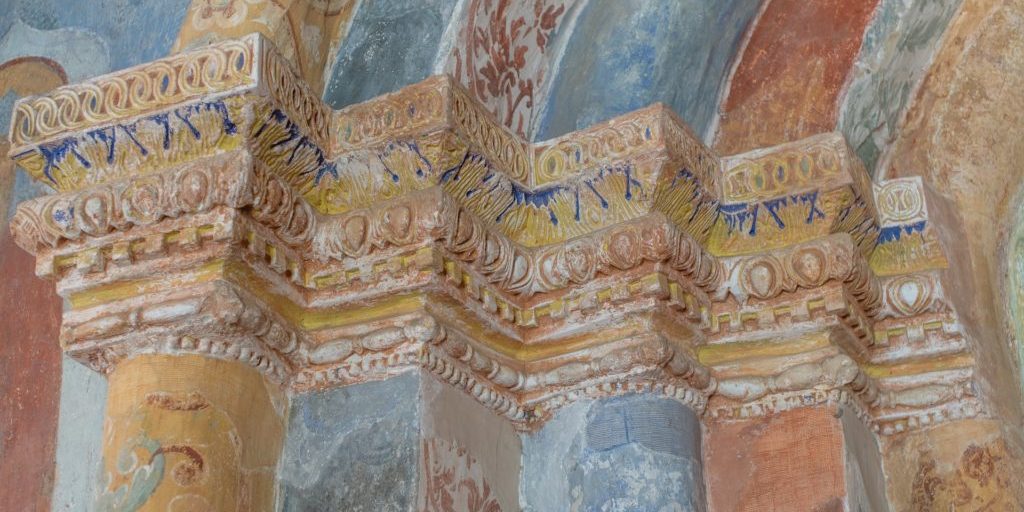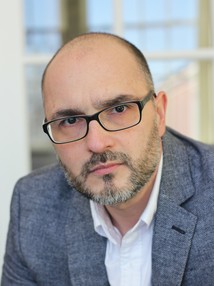
Credo Fellow Interview: Adonis Vidu
Credo Fellow A donis Vidu is Professor of theology at Gordon-Conwell Theological Seminary. He is a constructive theologian involved in a recovery of the patristic and medieval Trinitarian theology for the contemporary church, with an eye to its conceptual clarity and validity. Having done previous work in theological epistemology, hermeneutics, and the doctrine of the atonement, his latest research focuses on recovery, clarification, and defense of the ancient rule of the inseparable operations of the Trinity. This project also generates a fundamental rethinking of several loci of systematic theology through the doctrine of ‘divine missions.’ Dr. Vidu is married to Adriana, and they have one daughter, Hannah. He also served as an elder at Grace Chapel, Lexington.
donis Vidu is Professor of theology at Gordon-Conwell Theological Seminary. He is a constructive theologian involved in a recovery of the patristic and medieval Trinitarian theology for the contemporary church, with an eye to its conceptual clarity and validity. Having done previous work in theological epistemology, hermeneutics, and the doctrine of the atonement, his latest research focuses on recovery, clarification, and defense of the ancient rule of the inseparable operations of the Trinity. This project also generates a fundamental rethinking of several loci of systematic theology through the doctrine of ‘divine missions.’ Dr. Vidu is married to Adriana, and they have one daughter, Hannah. He also served as an elder at Grace Chapel, Lexington.
As a Credo Fellow, you equip pastors and ministry leaders to teach Classical doctrines to the people in their churches. What counsel would you give to those trying to teach doctrines like inseparable operations to their congregations?
This is a topic I am thinking about a lot these days. So much has changed in the expectations of our parishioners and their tolerance for solid food. I think we need to start thinking strategically rather than tactically. Turning the tide towards doctrinal preaching is a long-term project, and not just a matter of individual sermons. In my view it needs to involve a number of elements: Part of the role of theologian is to constantly remind the congregation that it is a supernatural and eschatological, and not simply a historical reality. Share on X(1) recovering the centrality of creeds and confessions in the life of the church; (2) making catechism more central, either as connected to baptism, or the general teaching ministry of the church; in connection to this, youth ministry must pay a lot more attention to Scripture and creeds than to games and fun. There are certain popular YM curricula which are ridiculously shallow and lack all interest in the doctrines we hold dear; (3) having a good balance between expository and doctrinal preaching; (4) finally, worship is essential: particularly the sacraments of Lord’s supper and Baptism, but also congregational singing. Too often we just go through these motions, without pausing to reflect on the mystery being unfolded before our eyes and delighting in the enormity of the grace of God. These events and practices are so profoundly theological!
Credo helps churchgoers, pastors, and students alike learn theology and retrieve orthodoxy for the sake of Christian fidelity today by bridging the gap between church and academy. What does this look like for you currently in your local context?
This poses a particular challenge in an American context, where the leaning towards pragmatism is deeply embedded. There are certainly excellent reasons for that and many advantages as well. We have exchanged the glory and the mystery of the gospel, for a comfortable, natural religion. Share on XBut it all too easily naturalizes the church into a mundane community which pursues only finite ends. We have exchanged the glory and the mystery of the gospel, for a comfortable, natural religion. Part of the role of theologian is to constantly remind the congregation that it is a supernatural and eschatological, and not simply a historical reality. Additionally, with a rapidly changing society and culture, there are so many issues that require serious theological input (sexuality, public theology, various issues raised by the current pandemic). It remains to be seen whether churches will cultivate the need for theology or not.
Can you give us a sneak peek of any current projects you have coming down the pipeline?
My most recent book is on T
he Divine Missions: An Introduction (Wipf & Stock, 2021), which is a shorter, more digestible discussion of the category of a divine mission. We too easily confuse missions and operations. I focus on the nature of the missions, their formality, visible and invisible missions, and finally the way in which the missions anticipate the beatific vision. I am currently working on a project on The Trinity and Christian Experience in which I explore what it means to experience the Trinity. In modern Western theology, Schleiermacher famously pushes the Trinity outside the bounds of Christian experience. Interestingly, he is motivated precisely by a strong monotheism and a doctrine of inseparable operations – which I have also tried to defend. If he’s right, it would show classical Western trinitarianism to be experientially bankrupt. I do not think this is the case: even though the persons always act inseparably in the world, there is an experience of the Trinity which is distinct between the persons. My book will show how we experience the Trinity in prayer, the sacraments, love and sexuality, and suffering.
